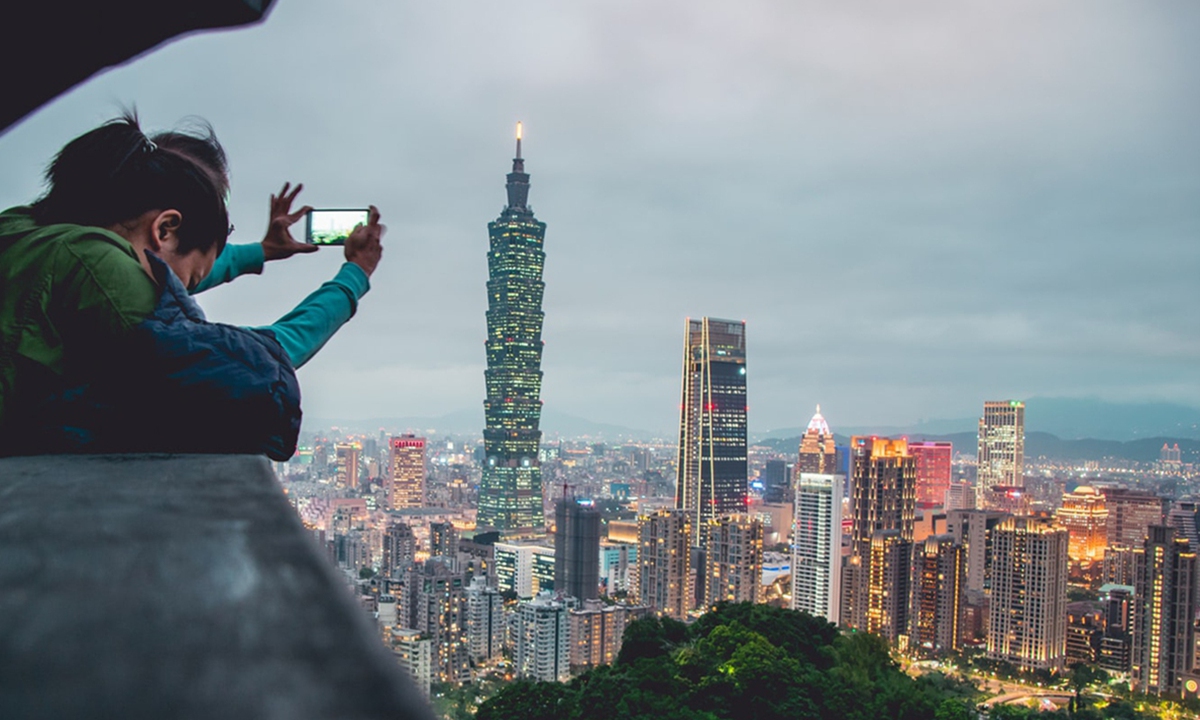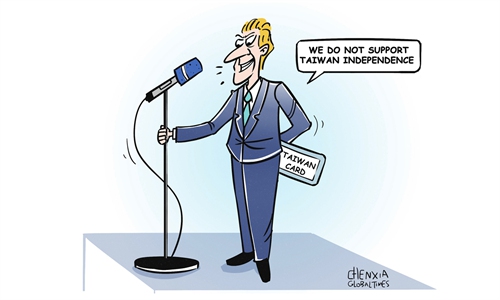Taiwan’s fate shouldn’t be tied to US war machine

Taiwan Photo: Unsplash
Former US president Donald Trump is known for his forthright statements, and his stance on the Taiwan question is no exception. During a recent interview with Fox News, Trump suggested that the US should not come to Taiwan's defense if the mainland were to attack. He pointed out that Taiwan has taken business away from the US, specifically in the semiconductor industry. "Taiwan did take all of our chip business," Trump stated. "We used to make all of our own chips, now they're made in Taiwan, 90 percent of [them]... Remember this, Taiwan took, smart, brilliant, they took our business away."
So what is Washington to do? Take it back, of course - without Trump having to say much.
A few years ago, during a trip to Taiwan, I visited Hsinchu, and I remember thinking how such a small place could produce such high-end chips, making Taiwan the center of the global semiconductor industry. How would Taiwan's economy be affected if it lost those factories?
The hollowing out of Taiwan's economy has been a topic of discussion among experts both on the island and outside it for many years. The "wolf," as it were, has finally arrived, with the US eagerly taking action.
Capital is inherently selfish. When profits cannot be maximized in the Chinese mainland market, efforts are made to contain the mainland's development. If Washington can't get the chips in its hands, how will the US come to compete with China?
My first impression of Hsinchu was that it was not as bustling as I had imagined, and the pace of life for the locals seemed relatively relaxed. The owner of a small restaurant I encountered was most concerned about whether her son could get into a prestigious American university, just like her daughter had. This, perhaps, is what the Taiwan people refer to as "small but certain happiness."
What supports this way of life? Of course, it's the economy, and a significant part of that is the semiconductor industry.
According to statistics from mainland authorities, Taiwan's trade surplus with the Chinese mainland reached $130.864 billion last year, with chips being the island's top export to the mainland. The profits from other products are largely due to preferential policies given by the mainland. This trade surplus of over $130 billion is almost equivalent to Taiwan's total trade surplus.
The trouble is, it's not that the mainland doesn't want Taiwan to live this way. The preferential policies it has given Taiwan have actually become a foundation for how the island maintains this way of life. The strategists in Washington and the capital forces on Wall Street are unlikely to allow the Taiwan people to carry on living this way. While Washington has taken China as its main adversary, the island's economic base will be shaken.
The US logic is that the money earned by Taiwanese chip manufacturers is considered American money, Wall Street's money. Look at some of the world's most valuable companies - Microsoft, Apple, Google, X (formerly Twitter), Facebook and the defense industry... Which of these could operate without chips made in Taiwan? This is why the US is creating tension in the Taiwan Straits while desperately trying to force Taiwan's semiconductor industry to relocate to the US.
The crux of the matter is not whether the mainland is still willing to buy or whether it can replace these chips, but rather the fact that if factories in Taiwan move and if 3nm and 4nm chips can be produced in the US, what will be left for Taiwan? Research and development? That would be like a tree without roots.
For over 500 years, Western capital forces have spread globally, relying on such predatory methods, no matter how noble their reasons now appear.
Three possible outcomes can be foreseen: one, the mainland's chip research and production capabilities will accelerate under Washington's containment, gradually replacing foreign chips; two, Taiwan could shift its chip production and become subject to US control, distancing itself from the mainland, the world's largest end-product market; and three, the Taiwan chip industry will face challenges from other regions with chip production capabilities, such as South Korea, Japan, Germany, among others, leading to market contraction.
The ultimate results of each of these possibilities for Taiwan don't need to be spelled out. Some people want Taiwan to maintain the status quo, neither unifying with the mainland nor declaring "independence." But will Taiwan's economy still have the capacity to do so?
Taiwan enjoyed "small but certain happiness" previously because Washington and Wall Street had not yet made their move. When pro-independence forces tie Taiwan's fate tightly to the US war machine, Taiwan's economic development choices are already severely limited. It is hoped that more Taiwan people will see the prospects for their island from the truths spoken by Trump.
The author is a senior editor with People's Daily, and currently a senior fellow with the Chongyang Institute for Financial Studies at Renmin University of China. dinggang@globaltimes.com.cn. Follow him on X @dinggangchina


